Keywords: Michael Mullins
-

AUSTRALIA
- Michael Mullins
- 26 May 2014
9 Comments
The Australian Government needs to be less cavalier and reticent to subsidise local manufacturers, who are obliged to be transparent about their work practices and bear the costs of this. When our politicians praise workplace efficiency in other countries, they are promoting manufacturing processes that often exploit workers.
READ MORE 
-

AUSTRALIA
- Michael Mullins
- 19 May 2014
6 Comments
When Tony Abbott reintroduced knights and dames back in March, critics said it was a sign he was 'stuck in the 1950s'. Another characteristic of 1950s Australian society was the sectarianism that bitterly divided the nation along religious lines. There are echoes of this in last Tuesday's Federal Budget announcement that schools will lose the option of appointing non-religious welfare workers under the national school chaplaincy program.
READ MORE 
-
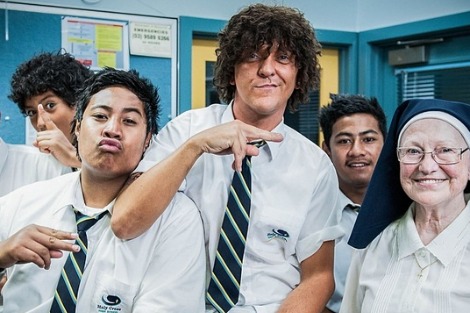
AUSTRALIA
- Michael Mullins
- 12 May 2014
12 Comments
The jury is out on whether Chris Lilley's new ABC1 comedy Jonah from Tonga gives a free kick to racism and other forms of discriminatory behaviour. The prejudices in Lilley's Jonah are depictions of the wounds of Australian society, not the attempt of a far-right ideologue to promote a stratified nation based on race.
READ MORE 
-
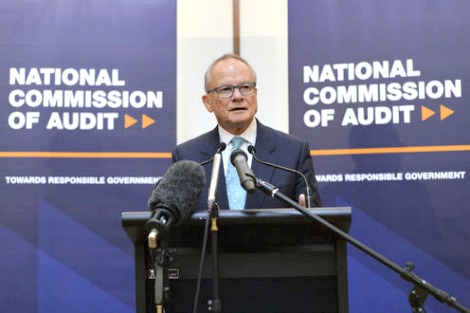
AUSTRALIA
- Michael Mullins
- 05 May 2014
17 Comments
The National Commission of Audit believes spending cuts that produce a balanced Budget will make us all better off because we will have a stronger economy and more jobs. But Pope Francis is skeptical about such 'trickle-down' economic theories, which express 'a crude and naive trust in the goodness of those wielding economic power'.
READ MORE 
-

AUSTRALIA
- Michael Mullins
- 28 April 2014
9 Comments
In South Sudan, hate speech broadcast on a local FM radio station earlier this month led to the slaughter of hundreds of innocent civilians in a massacre based on ethnicity. Local UN officials are now calling on authorities to 'to take all measures possible to prevent the airing of such messages'. Meanwhile in Australia, the Government is attempting to give legal sanction to the kind of hate speech that incited to the South Sudan massacre.
READ MORE 
-

AUSTRALIA
- Michael Mullins
- 14 April 2014
3 Comments
Last week's Game of Thrones series four premiere revealed Melbourne as the pirate capital of the world. The downloaders make a 'people power' claim to moral legitimacy because they think pay TV provider Foxtel's business model undermines the access they believe they are entitled to. Stories are not a cultural form of terra nullius, and human nature will not allow them to be wholly appropriated by business interests.
READ MORE 
-

AUSTRALIA
- Michael Mullins
- 07 April 2014
7 Comments
Federal Treasury secretary Martin Parkinson has called on the Government to increase the GST. In isolation this would hurt the poor and benefit the rich. But it could help the common good if it is part of a tax reform package that cuts tax avoidance strategies for high income earners, including superannuation concessions, negative gearing and trusts.
READ MORE 
-
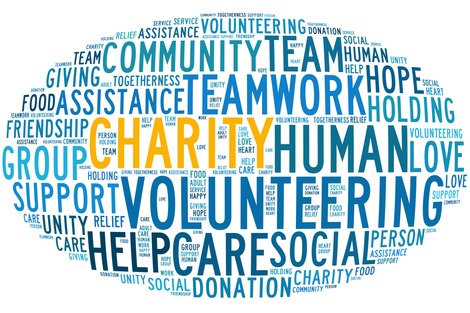
AUSTRALIA
- Michael Mullins
- 31 March 2014
5 Comments
The Federal Government is moving to abolish the body set up to protect and regulate the non-profit sector. Vinnies CEO John Falzon describes the action as 'ideological', while Melbourne Catholic education chief Stephen Elder sees it as an opportunity to spend more time raising money and delivering services. The Government must explain the policy imperatives driving it to dismantle such an extensively considered piece of legislation.
READ MORE 
-

AUSTRALIA
- Michael Mullins
- 17 March 2014
6 Comments
Arts minister George Brandis has accused artists of 'bullying' corporate heavyweight Transfield. The artists' recent ultimatum to the board of the Sydney Biennale threatens to kill the event and possibly the entire model of arts sponsorship in Australia. Both sides of the dispute have lost sight of the opportunity that networking between artists and sponsors offers for civilised conversation that leads to a better world for all.
READ MORE 
-
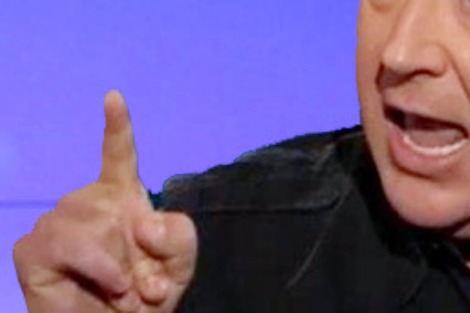
AUSTRALIA
- Michael Mullins
- 10 March 2014
9 Comments
The Federal Government plans to change the Racial Discrimination Act to give preference to free speech over protecting individuals and groups from vilification. It is not surprising that there is strong media support for the changes, as they will give investigative reporters and shock jocks alike the legislative freedom they need to do their job. But the Government must include robust legislation to penalise those who get their facts wrong.
READ MORE 
-
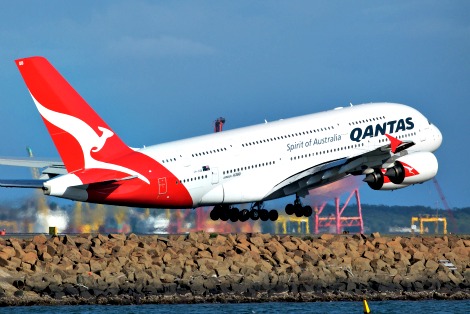
AUSTRALIA
- Michael Mullins
- 03 March 2014
10 Comments
In the face of the Federal Government's resolve to be unemotional in its attitude to financial assistance for Qantas, we have Bill Shorten warning us against 'waving goodbye to an Australian icon'. Underlying mention of Qantas as an 'Australian icon' could be the sentiment associated with the 1990s resurgence of nationalism and its racist undertones associated with Pauline Hanson.
READ MORE 
-

AUSTRALIA
- Michael Mullins
- 24 February 2014
22 Comments
Health minister Peter Dutton has refused to dismiss the possibility that a $6 ‘co-payment’ for GP visits could be announced in the May Federal Budget. This would be no more than a quick and easy temporary fix that would penalise ordinary Australians. It would simply defer the government's need to tackle the vested interests that are arguably the major cause of the inefficiencies that have made our health care system prohibitively expensive.
READ MORE 